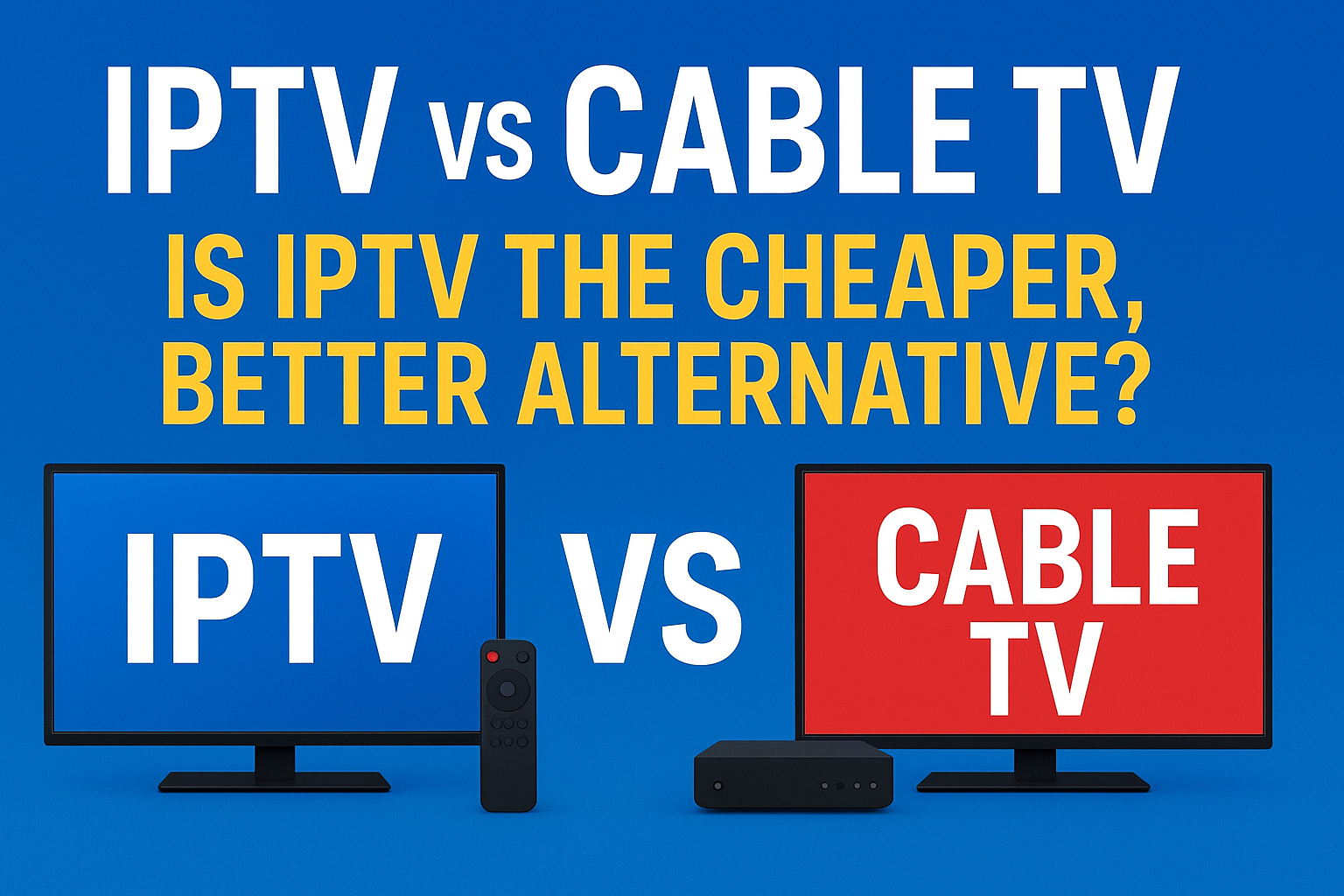In today’s fast-paced digital world, the way we consume entertainment has changed dramatically. Gone are the days when cable TV was the only way to access your favorite shows and movies. Internet Protocol Television (IPTV) is quickly becoming a strong contender, offering a more flexible and cost-effective solution for viewers. But is IPTV really the cheaper and better alternative to cable TV? Let’s break it down.
What is IPTV?
IPTV (Internet Protocol Television) delivers television content over the internet rather than through traditional cable or satellite signals. It works much like streaming services, allowing you to watch live TV, on-demand shows, and movies through an internet connection on devices like Smart TVs, smartphones, tablets, or streaming boxes.
IPTV vs Cable TV: Key Differences
1. Cost Comparison
- Cable TV – Traditional cable subscriptions often come with high monthly fees, equipment rental costs, and hidden charges.
- IPTV – IPTV services are generally cheaper, especially when you choose packages that let you pay for the channels you actually watch.
Winner: ✅ IPTV – Most users find IPTV more budget-friendly.
2. Content & Flexibility
- Cable TV – Offers a fixed set of channels, with premium add-ons often costing extra.
- IPTV – Gives access to a wide range of channels worldwide, on-demand content, and even catch-up TV so you can watch shows you missed.
Winner: ✅ IPTV – Greater variety and flexibility make it more appealing.
3. Accessibility & Device Support
- Cable TV – Requires a physical cable connection and a set-top box.
- IPTV – Works anywhere with a stable internet connection and can be streamed on multiple devices without extra hardware.
Winner: ✅ IPTV – Perfect for on-the-go viewing.
4. Picture Quality & User Experience
- Cable TV – Offers consistent quality, but sometimes limited to HD depending on your provider.
- IPTV – Can deliver HD and even 4K quality, provided you have a good internet connection.
Winner: 🤝 Tie – IPTV can outperform cable, but depends on your internet speed.
Pros & Cons of IPTV
Pros:
✅ Lower monthly cost compared to cable
✅ Huge library of international channels and on-demand content
✅ Works across multiple devices
✅ Pause, rewind, and catch-up features
Cons:
❌ Requires strong internet connection
❌ May face buffering during peak usage hours
❌ Some IPTV providers operate in a legal gray area (choose trusted services)
Is IPTV the Better Alternative?
For most viewers, IPTV is indeed a cheaper and more versatile alternative to cable TV. It gives you control over what you watch, how you watch, and what you pay for. However, if your internet connection is slow or unreliable, cable TV might still offer a more stable experience.
Final Thoughts
The future of entertainment is undoubtedly moving online, and IPTV is at the forefront of this shift. If you want affordability, flexibility, and access to global content, IPTV is worth considering. Just make sure to pick a reputable provider to avoid service interruptions and legal issues.


